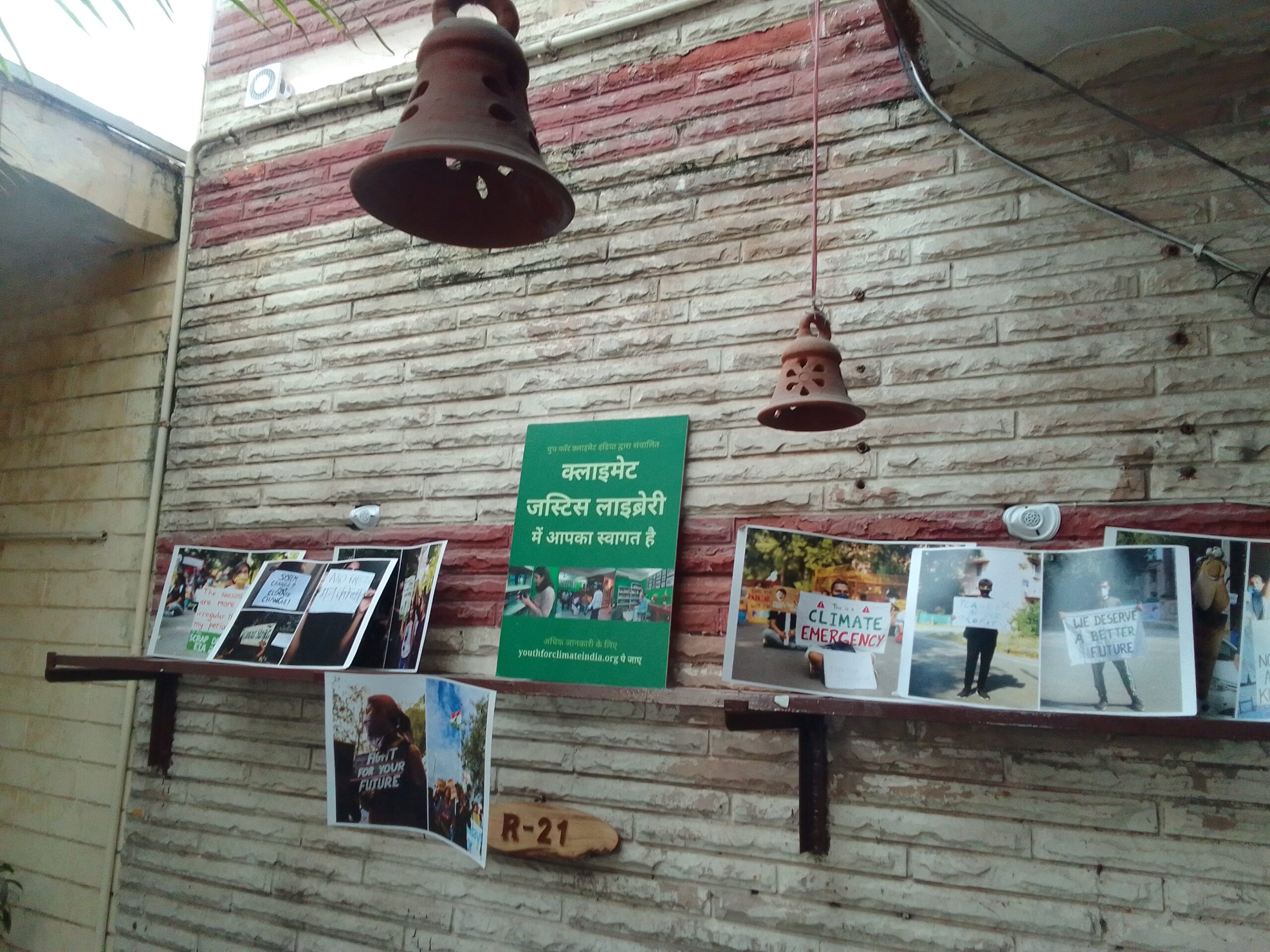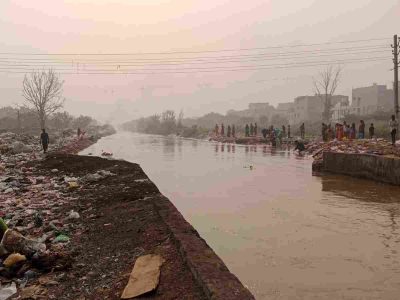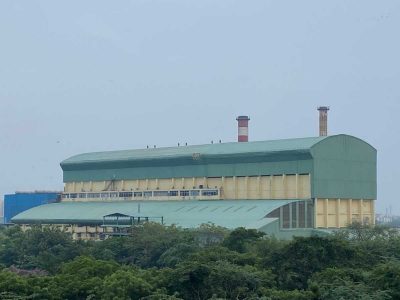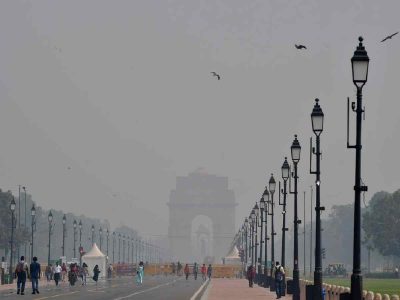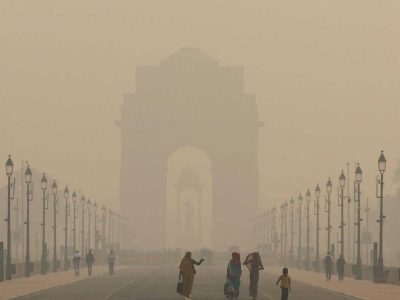Climate change is one of the biggest problems facing not just India, but also the world with Delhi among cities most affected by it.
While warnings have been consistently sent out with the latest coming from a panel of scientists from United Nations (UN), which last month stated, ‘Humanity still has a chance, close to the last, to prevent the worst of climate change’s future harms’, there are people taking up the cause to educate people about it.
Like Lakshay, a volunteer and founder member of a community library which was set up with an objective of spreading awareness about climate change by making climate justice-related literature more accessible.
“These types of books are available in only big institutions such as Jawaharlal Nehru University (JNU), but they are not open to all. So, we thought that these books and literature should be accessible to all at a very low cost. Therefore, we started the library,” Lakshay told Patriot.
The climate justice library was established in collaboration with the ‘Youth for Climate India’ team in South Extension, Delhi on March 15, 2022 with the aim of making climate literacy available to community members and general public.
The library has magazines, research papers and books on topics such as air pollution, water pollution, politics of environmental conservation, ecology, energy, and many others.
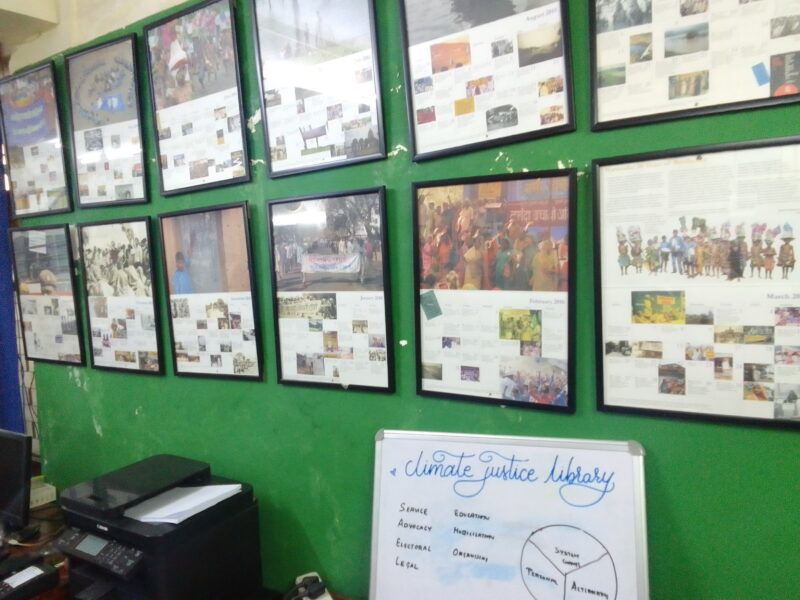
Vijay Sehrawat, another founding member of the library explained to Patriot, “This is a library where we focus on how we can provide ‘literature of climate’ easily to people. The library has around 600 books on various topics such as air pollution, water pollution, climate-related policies, and many others. A person can know and learn about the environment and related issues in different ways here. Besides this, we organise events for climate awareness every one or two months, and raise the issues as ‘struggle of grassroots people’ because some of these things (struggles of locals) are not available in books. We have organised five or six events over the last year on coal, mines, heat wave, participation of youth in climate and other matters. By this, we try to bring these issues to the forefront.”
He said further, “Over the last one year, the response has been very good. This library has been open for around 100 days and around 500-550 people have visited it. So, five to six people are visiting daily. The library has helped many people, who couldn’t buy [costly] books. For instance, a child who visited the library wanted to read an important book [on environment]. But he couldn’t afford it. When he came here, he got the book free of cost. So, many people are benefiting from the library’s environment literature.”
Sehrawat says his team has plans to take the library beyond Delhi and publish the literature in various languages.
“We are trying to provide this literature in different languages and want to extend the library beyond Delhi too. This year, we are planning to set up one more library in collaboration with the native women’s group in Ambikapur, Chhattisgarh. This women’s group has been working on different issues for over a decade. So, we will set up the library with them because they already know the local issues and will provide better support. Because we believe that the issue of environment is not only for Delhi but many places in the country. So, the people should be aware and talk about what they themselves, their city, and the government can do about it. The books of the library will not only be on local environment and community issues such as natural resource management, mining, RTI, but in local languages also, so that they can be easily understood,” said Sehrawat.
“We got no financial support for this library but we got a lot of donations in the form of books. Out of 600, we had to buy hardly 15-20 books. Otherwise, all were given by people. In the beginning, we reached out to community members. People sent one or two and some even gave around 50 books.
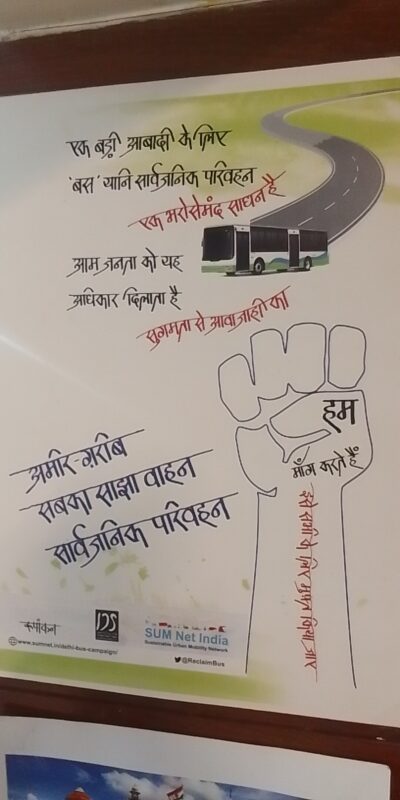
The space for this library has been offered by the ‘Centre For Financial Accountability’ which has been working for around 20 years in development finance. We try to manage by installing the stalls in colleges and taking donations of books and clothes,” Vijay said.
Government not serious
Sehrawat isn’t impressed with government’s response.
“Recently, the government released a report ‘India’s Assessment on Climate Change’. The report talks of the effect of climate change in India. Unfortunately, the government is only talking about climate change but is not seriously taking any action. On one hand we talk about it, and on the other hand, [illegal] mining is taking place. People are getting displaced and migrating. Politicians have made promises during election time but haven’t fulfilled them. Even in 2014, PM Modi announced the cleaning of river Ganga. But when you check on the ground, it hasn’t been cleaned. Even after 40 years, the victims of ‘Bhopal Gas Tragedy’ haven’t got justice. Hame Jaisa ravaiya sarkar se chahiye usse abhi kaafi door hain (The government is miles away from what we want).
“India is ranked fifth [among the top 10 contributors to global warming] and the effect of climate change is very high. And the type of serious action the government should take, neither central, nor state governments are taking. We are facing adverse results such as floods affecting fishermen and labourers among others, non-seasonal rain destroying agricultural crops.”
In India, this situation has been made much worse because of extreme air pollution. India’s air quality can exacerbate respiratory illnesses such as asthma and chronic obstructive pulmonary disease (COPD), adding to the country’s disease burden.
Eeshna Gupta also came to participate in the anniversary programme of the library.
She had helped in the setting up of the library last year.
“An environmental issue is not only about the environment, but it’s a social issue too because many social issues such as health are related to it. We need to focus on many things. The main aim of the library was to provide climate related books in public domain. Because, I think, awareness is most important for any fight. These books are very costly, everybody couldn’t buy them. Library connects many students and people and the consciousness is growing in people but this journey is very long. I personally think we need to connect more and more people. It is a long fight.”
The cost of climate change is weighing heavy on India’s economy, and has impacted jobs and crop production. Extreme weather events such as floods and droughts caused by climate change also disrupt water and sanitation systems, leading to increased outbreaks of waterborne diseases.
Lakshay, the volunteer of the library who earlier worked with Peoples Editor and is currently working in an organisation which focusses on women cruelty, said, “We all have different perspectives on climate change, on the basis of region. My perspective, since I grew up in Delhi, will be different from a man in Chhattisgarh. Last year, we collected magazines, research papers, environmental reports, among others in the library and this year we are planning to arrange audio-video, documentary-based climate related literature for those who couldn’t read books. We will work on it this year. The timing of the library is from 10 am to 5 pm. We are around 30 volunteers in the library who are also doing some other jobs but we want to run this better so that access to this library could go to more and more people.
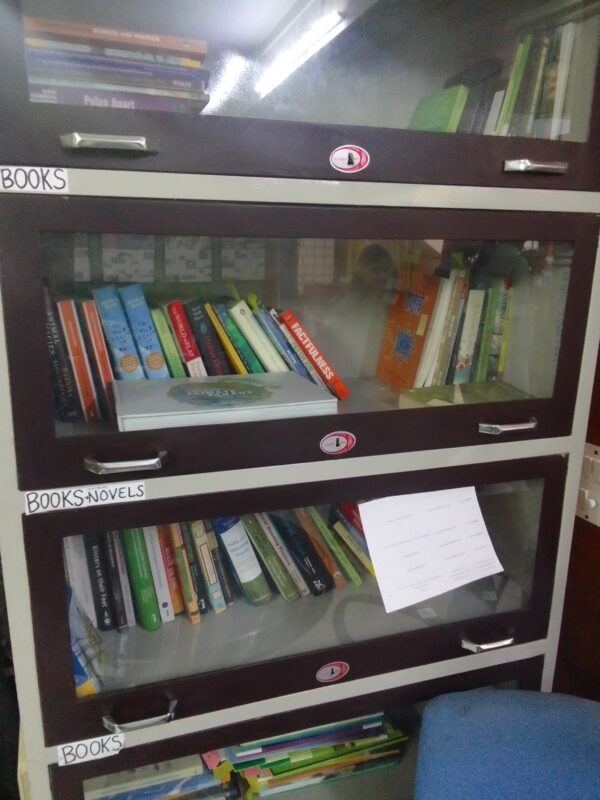
“The people who attended our library events got new life experiences because they were participating in this type of event for the first time. They were not so concerned and aware of climate change before. It was a minor success for us to see people attending and sending their children here. The perception of the people about climate is also changing now. Now we are in the last stage of climate change. The secretary of the United Nations has also warned, so the government should be aware and serious.”
In March 2023, Secretary-General of UN António Guterres said, “Every year of insufficient action to keep global warming below 1.5 degrees Celsius drives us closer to the brink, increasing systemic risks and reducing our resilience against climate catastrophe.”

